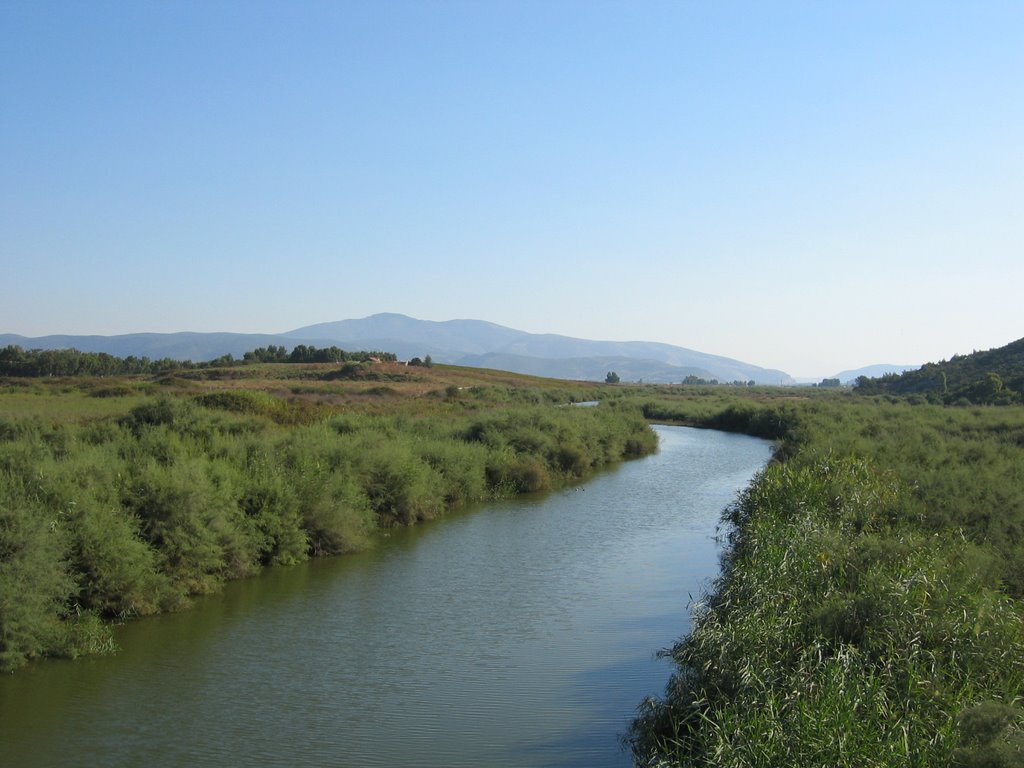Deleuze used the eternal return as a metaphor to talk about something that mattered more to him than getting Nietzsche right: the nature of identity. Deleuze’s real inspirations were Heraclitus and the Stoics. (But then, so were Nietzsche’s.)
In fragment 59, Heraclitus says that any object consists of an “opposing tension, like that of the bow and the lyre.” The string of a bow appears to be (and is) a stable and unified thing, but that is because it is being pulled in two opposite directions at once. The persistence of the bow over time depends on the persistence of this dynamic tension, not that of its constituent parts.
An object might also persist by changing its constituent parts. A river, for example, consists of flowing water. If you step into one, you’ll step into different water than you would have if you’d stepped in a moment earlier or later. Yet it would still be the same river, because a river is flowing water.
Identity over time is a process, and an object’s persistence from one moment to the next is the continuation of a process. This is what Deleuze means when he talks about the “return of difference.” If objects are processes, and if processes are opposed forces acting on one another, or replacements of one part for another, or transformations of one thing into another, then the persistence of the object is the persistence of replacing, transforming, or opposing – in other words, of change or “difference.”
To understand any object is to understand it as a thing that remains what it is by changing. It follows that all objects are always changing in some respect, and that everything is both the same and different, or as Deleuze would prefer to put it, neither the same nor different.
There’s a great deal more to Deleuze’s thoughts on identity and difference (and on the implications for Nietzsche’s eternal return), but this is the essential starting point. For “return” or “repetition” read persistence or process, and for “difference” read change, opposition, or transformation.
Below, the Cayster River in Heraclitus’ home town of Ephesus (now in İzmir, Turkey).


